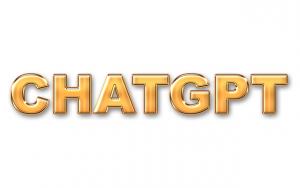How does ChatGPT answer the question: what are the health benefits of selenium supplementation in Europe? Earlier this month, we posed that question to the free version of ChatGPT. We focused on Europe because the selenium intakes in the United States are generally much higher than the selenium intakes in many parts of Europe [Alehagen 2022].

First, ChatGPT explained that selenium is an essential trace element. It plays an important role in physiological processes in the body. It is a necessary component in selenoproteins. These selenoproteins have antioxidant properties. They help regulate immune system function, thyroid function, and DNA synthesis.
Next, ChatGPT reminded that excessive intake of selenium can lead to toxicity. Selenium supplementation should be undertaken under the guidance of a healthcare professional. Note that the Nordic Nutrition Recommendations 2023 and the European Food Safety Authority both set the tolerable upper intake level at 255 mcg/day [Blomhoff 2023; EFSA 2023].
Potential Health Benefits of Selenium Supplementation
What are the potential health benefits to selenium supplementation?
- Antioxidant Protection: Selenoproteins such as the glutathione peroxidases and thioredoxin reductases neutralize harmful free radicals and help protect cells from oxidative damage [Bjørklund 2022].
- Cancer Prevention: Selenium may have a role in cancer prevention, particularly in reducing the risk of certain types of cancer such as prostate, lung, and colorectal cancer. However, the evidence is not conclusive. More research is needed [Kuria 2020].
- Heart Health: Adequate selenium levels may be associated with a lower risk of cardiovascular diseases [Kuria 2021]. Selenium is needed to reduce inflammation and oxidative stress.
- Immune System Support: Selenium promotes the activity of the white blood cells and enhances the body’s defense against infections. It may also have anti-inflammatory effects [Avery 2018].
- Thyroid Function: Adequate selenium levels are necessary for the production of thyroid hormones. Selenium deficiency has been associated with thyroid disorders [Winther 2020].
Factors Affecting Health Benefits of Selenium Supplementation
ChatGPT points out that the health benefits of selenium supplementation can vary depending on individual factors such as age, sex, and existing health conditions. Moreover, the content of selenium in the soil and in the food of a particular region has an effect [Stoffaneller & Morse 2015]
Conclusion: ChatGPT Advises Discussion with Healthcare Professional
It is important to know whether we live in a selenium-rich region or in a selenium-poor region.
For this reason, ChatGPT advises that we should discuss selenium supplementation with a healthcare professional. We need to see if selenium supplementation will address their specific health needs.
Sources
Alehagen U, Johansson P, Svensson E, Aaseth J, Alexander J. Improved cardiovascular health by supplementation with selenium and coenzyme Q10: applying structural equation modelling (SEM) to clinical outcomes and biomarkers to explore underlying mechanisms in a prospective randomized double-blind placebo-controlled intervention project in Sweden. Eur J Nutr. 2022 Sep;61(6):3135-3148.
Avery JC, Hoffmann PR. Selenium, selenoproteins, and immunity. Nutrients. 2018 Sep 1;10(9):1203.
Bjørklund G, Shanaida M, Lysiuk R, Antonyak H, Klishch I, Shanaida V, Peana M. Selenium: an antioxidant with a critical role in anti-aging. Molecules. 2022 Oct 5;27(19):6613.
Blomhoff R, Andersen R, Arnesen EK, et al. Nordic Nutrition Recommendations 2023: Integrating Environmental Perspectives. Copenhagen: Nordic Council of Ministers, 2023.
ChatGPT. Health Benefits of Selenium Supplementation in Europe. 21 November 2023.
EFSA. Scientific opinion on the tolerable upper intake level for selenium. EFSA Journal. 2023;21(1): e07704.
FAO. Human Vitamin and Mineral Requirements. Chapter 15: Selenium. Table 50: Geographic Differences in the Selenium Intakes (mcg/day) of Adults. 2001. Retrieved from https://www.fao.org/3/Y2809E/y2809e0l.htm
Kuria A, Fang X, Li M, Han H, He J, Aaseth JO, Cao Y. Does dietary intake of selenium protect against cancer? A systematic review and meta-analysis of population-based prospective studies. Crit Rev Food Sci Nutr. 2020;60(4):684-694.
Kuria A, Tian H, Li M, Wang Y, Aaseth JO, Zang J, Cao Y. Selenium status in the body and cardiovascular disease: a systematic review and meta-analysis. Crit Rev Food Sci Nutr. 2021;61(21):3616-3625.
Stoffaneller R, Morse NL. A review of dietary selenium intake and selenium status in Europe and the Middle East. Nutrients. 2015 Feb 27;7(3):1494-537.
Winther KH, Rayman MP, Bonnema SJ, Hegedüs L. Selenium in thyroid disorders – essential knowledge for clinicians. Nat Rev Endocrinol. 2020 Mar;16(3):165-176.
The information presented in this review article is not intended as medical advice. It should not be used as such.
